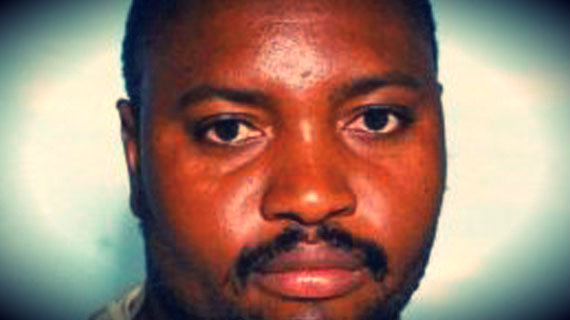
THE unwritten laws of humanity on equality and fairness state that no one is so important to avoid the prying and inquisitive eyes of commoners.
Masola wa Dabudabu
The lowest of societal scum reserve the right to cast curious glances towards the very important, the famous or even those endowed with infamy and notoriety. Proverbially, a cat may look at a king! The cats are the common people.
Right now the cats of Zimbabwe are ogling at royalty wondering what’s in store for them. Feline imagination is making the cats dream of a candid date with the king. The cats would like to interview the king. This could just be a dream!
In reality, the king does not subject himself to public scrutiny and possible humiliation by some mischievous low-lifers. He deals with royal correspondents who understand etiquette to the hilt.
Historically, his royalty has offered explosive insights on his life, trials and tribulations to the few he trusts; among them Dali Tambo. Tambo got full access to the king’s castle (or palace) in the making of an episode for the SABC’s People of the South programme. The interview was granted after the royal team was happy that the king was going to pull the strings in puppeteer fashion while the interviewer pulled no punches.
Television viewers in the region were subjected to rare snippets of the royal family pretending to be ordinary people. The viewers could not help but feel pity for the young members of the royal family who seemed to be drowning from an over-abundance of luxury.
Zimbabwe’s southern region migrant workers in neighbouring countries were not spared the vulgarity as they watched in awe and disbelief from their slums and shacks. The brief access to the palace seemed to provide snapshots of life in heaven. The interview did not delve into bread-and-butter issues.
- Chamisa under fire over US$120K donation
- Mavhunga puts DeMbare into Chibuku quarterfinals
- Pension funds bet on Cabora Bassa oilfields
- Councils defy govt fire tender directive
Keep Reading
The people wish for the king to be gracious enough to schedule a candid date with them. A panel of ordinary poor people could meet up with him at some poor man’s homestead somewhere in Gwatemba or Jotsholo.
The people would ask him questions from ordinary people’s perspectives. He will not be asked why he goes to Singapore for cataract operations instead of relying on the world-renowned expertise of Dr Solomon Guramatunhu — ophthalmologist extraordinaire.
The panel will not bother to ask him why he chose to send the little princess to a university in the Far East instead of sending her to one of the several local universities. The panel will not dwell on the magnitude of his salary and perquisites.
Luckily, the king will not have to justify why his cavalcade demands so many expensive four-wheel drive vehicles.
They may ask him to reveal the secret ingredient of his phenomenal electoral successes which seem to mesmerise his rivals to sour submission. He will be asked how much of the knowledge and skills he gained during his pursuance of the several degrees of violence he has so far employed in pulverising his enemies.
They will not dare remind him that winning a race where he is the only competitor does not make him the best.
The king will have to answer why so many people had to die needlessly during his tussle with Joshua Nkomo, Andrew Ndlovu, Thambolenyoka, Gwesela, Gayigusu and company in the mid-’80s. He will be asked to account for each and every citizen of the south who died in cold blood during the royal moment of madness.
He will be asked to explain why our hospitals are death-traps instead of being institutions of hope and healing. With due respect, the panel will demand answers. The king will be asked why our school teachers are only able to give more elaborate lessons to our children during school holidays. The panel would want to know why universities seem to churn out clueless graduates.
The king will be allowed to see the desolate countryside and the emaciated livestock. He will be allowed to see the very thin and sickly children with only pieces of loin cloth to preserve their modesty. He will have to tell the panel how he hopes to alleviate the suffering, the pain, the disorderliness, the crime, the madness, the anger, the prostitution, the hunger, the sickness, the hopelessness and the helplessness.
The king will certainly need to call upon higher mental resources to conjure solutions for all these problems. The panel will ask him bread-and-butter questions instead of cake-and-cream ones. The panel will ask on behalf of the people of the south why the land is dry and hardly produces enough to feed the people.
If he answers that it is God’s will people of the south experience perennial droughts, the panel will ask him to explain what happened to the Matabeleland Zambezi Water Project.
The king will be asked why the factories are no longer manufacturing anything. He will have to be sensitive to the unemployed people of the south after he criticised the men of the south for going to Johannesburg in search of employment.
He will be asked to provide a blueprint for solutions to the problems of all those people who cannot find employment in his kingdom. If he says he gave them land, he will have to be reminded of the water issue.
If he says he gave them ownership of the factories, he will be reminded of their permanent state of abeyance.
As a final note, the king will not be asked when he thinks he is going to abdicate his crown for a younger heir and for his own good. This is just but a possibility farfetched, for it is only the king who asks questions!
Masola wa Dabudabu is a social commentator










